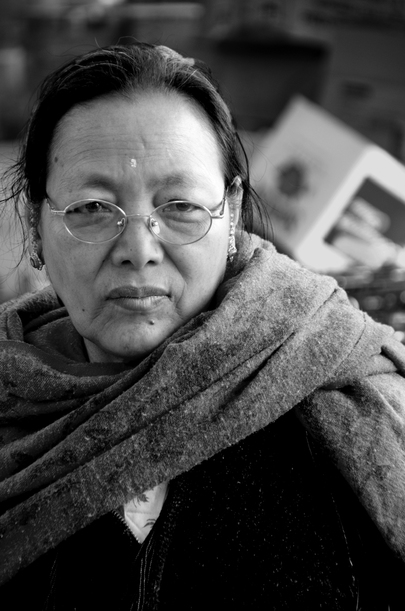
Pradhan Family--Nepali Refugees in Cleveland
Photographer: Steve Cagan
Exhibit Title: Pradhan Family--Nepali Refugees in Cleveland
Location: United States
People from Nepal began to settle in southern Bhutan in an organized way starting in the 19th Century. In 1958, they were given full citizenship in Bhutan, and in the following years had increasing contact and engagement with northern Bhutanese. But by the late 1980’s the Bhutanese government had taken a harsher attitude, demanding that southerners show evidence of having arrived before 1958, and that they adopt Bhutanese dress and customs; school instruction in Nepali was banned. In 1990, the Nepali population began to protest these policies, and the government responded with repressive measures, which are reported to go on even now. In the first years of the 90s, more than 100,000 ethnic Nepalis left Bhutan as refugees and ended up in seven refugee camps in Nepal. There it seemed they were doomed to remain, in conditions the UN described as some of the worst in the world. Several NGOs began to work with them to have them recognized as refugees by the State Department.
The extended Pradhan family has recently come to Cleveland as recognized refugees.
The Pradhan family and their relatives and friends are refugees. That is true. But they are not refugees only. There is a great danger that by applying a label like “refugee” to a person, a family, a community, we may put them into a category that defines them entirely. This can deprive us of the ability to see them as fully developed human beings, persons who experience joys and sorrows, who work and struggle like all of us to live in justice and peace and raise their children in dignity. I hope that this exhibit may contribute to seeing these people—who have so generously taken me in and graciously shared their lives and allowed me to take pictures and display them—as who they are: complex, richly endowed human beings who among other things have lived as refugees. I believe this can be a step towards mutual interest and understanding.
Make Comment/View Comments